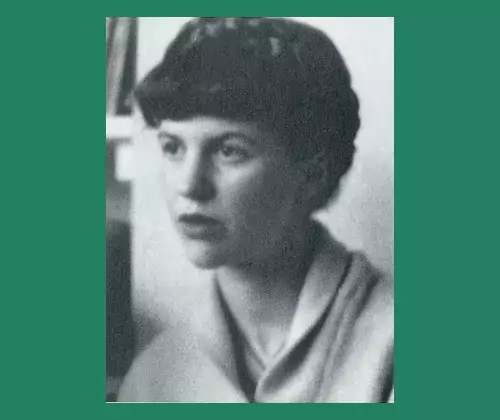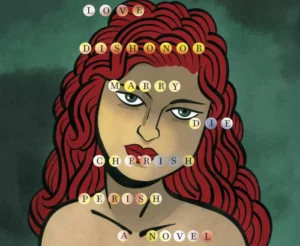For better or worse, it’s impossible to talk about ‘The Bell Jar’ without also talking about its author, Sylvia Plath. A semi-autobiographical account of her life, Plath’s heroine Esther Greenwood feels disconnected from her life and uncertain about her future. Falling into despair after being rejected for a writing scholarship, Esther sinks even deeper into depression. Over the course of the summer, she begins to question her identity as a writer and all the other options usually available to women of her time seem unappealing.
Esther feels trapped in what she similecally likens to the oppressive, distorted atmosphere of a bell jar. After a horrifically incompetent application of Electroconvulsive Therapy (ECT) to treat her depression, she makes several failed attempts to kill herself and is sent to a mental hospital to recover.
Plath called this roman à clef a ‘pot-boiler’ – poorly written – and it was initially received with disappointing reviews when first released in the UK. In fact, were it not for the author’s suicide a few months afterward, it’s a sad possibility that this book would not have received the acclaim it has. Its themes of mental health and feminine identity, while groundbreaking then, are still topical today and persist as subjects that require greater discussion.
Plath’s voice comes through in a style that is both unique and haunting. If you’ve read any of her poetry, you’ll recognize her imagery. The straightforward way in which she reviews Esther’s attempts to take her own life neither beg for your sympathy, nor serve to alienate the reader. She reflects that keen, unintentionally selfish, loss of concern for how others will be impacted by her actions – and this is the tragedy of ‘The Bell Jar’.
The book is semi-autobiographical, so much so that after Plath’s death her mother petitioned the publisher not to release the book in America, where the friends, neighbors, and family members Plath had written about lived. Sylvia, her mother said, had considered the novel “selfish”. Written from beneath the oblique glass of her own bell jar, she wrote of the world and people as she saw them at her worst. She’d intended to write a sequel from outside the jar but unfortunately, she didn’t survive to do so.
Plath did not escape the bell jar but a part of her does in Esther, who ends the book with the hope of a new beginning. A horrible, if morbidly romantic dichotomy, but each has gained acclaim in her own way. Since its publication in 1963 (under the pseudonym ‘Victoria Lucas’) ‘The Bell Jar’ has been translated into nearly a dozen languages. Plath has become one of the most acclaimed poets and writers of our century, even winning a posthumous Pulitzer Prize in 1982 for The Collected Poems. If you have never read any of her poetry, short stories, or journals, you are depriving yourself.
‘The Bell Jar’ was brought to the screen in 1979, and a brilliant biopic of Sylvia Plath starring Gwyneth Paltrow and Daniel Craig, ‘Sylvia’ was released in 2003. While this film does not cover the events that inspired the book, some of them are referenced. Both Paltrow and Craig do an excellent job portraying Plath and her husband, Ted Hughes, and the script is engaging and well written.



